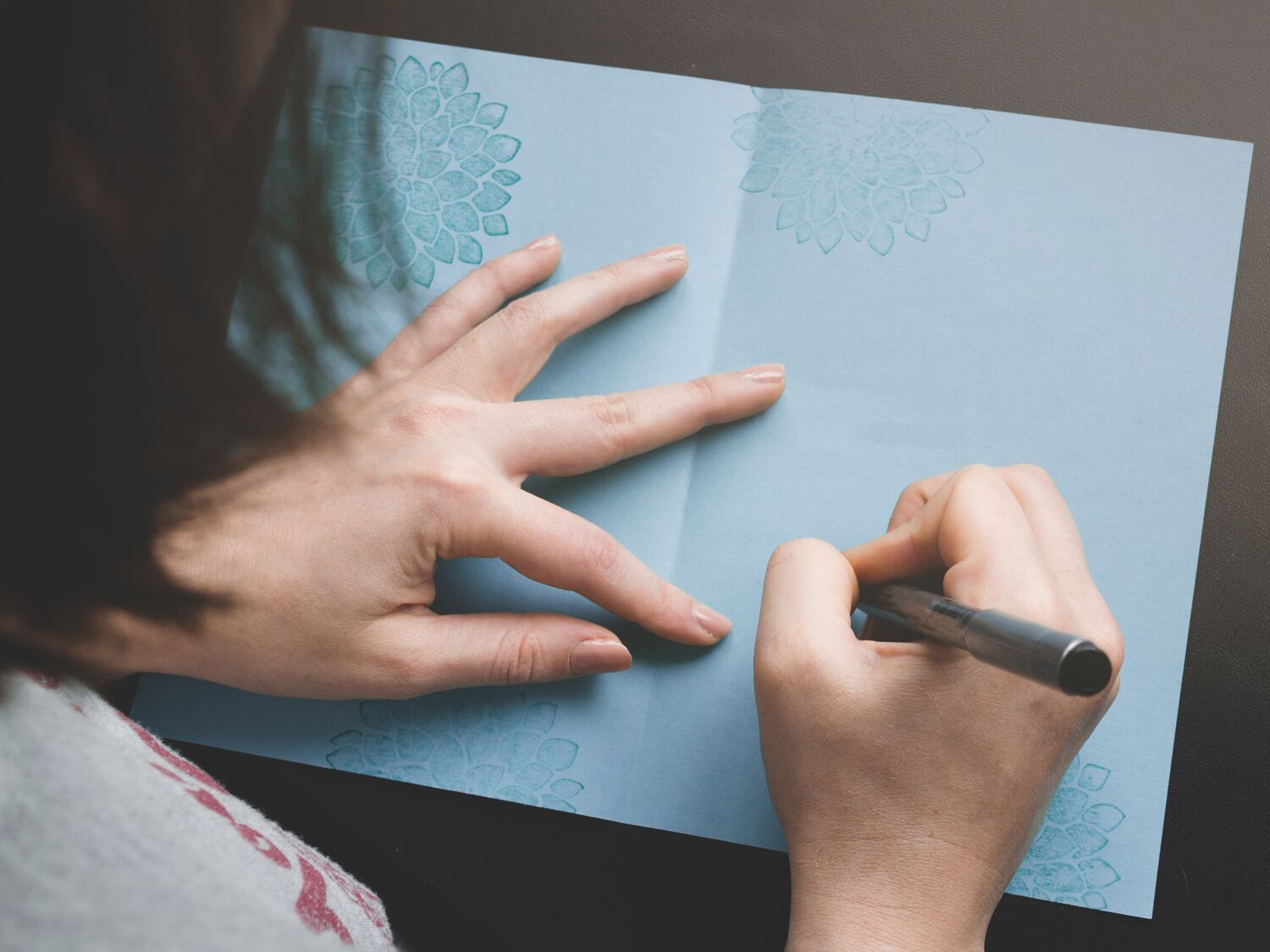Yes, The Postwedding Blues Are a Real Thing—Here's How to Deal

For many couples, the experience of planning a wedding is accompanied by intense feelings of excitement, anticipation and buildup—so much so that once the wedding day actually ends, the culmination of emotions can lead to grief and emptiness. If you're sad that your wedding day is over, you certainly aren't alone. In fact, there's even a phrase for it: the postwedding blues.
It's quite normal—and even expected—to feel gloomy after your wedding day. The postwedding blues could stem from a number of things: relief that all the planning stress is through; missing having your closest friends and family around; feeling bummed that your honeymoon is over; or even just an abstract sense of "what now?" You've just undergone a major life milestone, so you're bound to feel a little anxious about all the changes going on, whether it's a new last name, a new home (maybe far away from friends and family), new in-laws or a new relationship status.
When all the planning, attention and excitement fades away, it's common to feel a little deflated. Not to worry: the postwedding blues are a real thing, and you definitely aren't going crazy if you're feeling sad after you say "I do." That said, you shouldn't suffer through these emotions, especially in your season of newlywed bliss. If you're experiencing any form of postwedding depression, it's worth examining what the cause of it is. Before long, you'll be back on track and excited about what your wedding really represents: the start of your new life together.
In this article:
- What are the Postwedding Blues?
- Symptoms of the Postwedding Blues
- How to Manage the Postwedding Blues
What are the Postwedding Blues?
So, what exactly are the postwedding blues? "[It] happens when couples experience a period of letdown following the excitement of planning the wedding," says Jocelyn Charnas, a clinical psychologist and premarital counselor. It seems counterintuitive that you might feel down after living what should be one of the happiest days, but many people experience highs and lows in life, especially after big events. Ultimately, feeling sad after a huge life milestone is incredibly common. You may have been dreaming about your wedding day for months, years or even decades, so it's normal to feel upset or empty when it ends.
Symptoms of the Postwedding Blues
Not sure whether you're experiencing the wedding blues? Common feelings associated with postwedding sadness include boredom, lethargy, loneliness and isolation.
Why do couples experience the postwedding blues?
There are so many different reasons people might experience a postwedding low, and your reason for feeling sad might be different from someone else's. But, when it comes down to it, science proves that feeling sad after a big event is often to be expected. "The time spent putting in the work leading up to the wedding day can feel anticlimactic after it's over," explains Hilary (Weinstein) Hovis, LCSW and founder of HLW Therapy. "The wedding was also a time where your family, friends and loved ones were all under one roof to spend time with you and support you. That doesn't happen often, so the dopamine rush that happens as a result of that is naturally going to crash when you return to everyday life." Plus, the end of your wedding day signals a new stage of your life. And if you're left thinking, "My wedding is over, now what?" know that you aren't alone.
Why do parents experience the postwedding blues?
Just like couples can experience the postwedding blues, the same is true for parents as well. Whether you were heavily involved in the planning journey or you were just excited to watch your child tie the knot, it can feel incredibly upsetting for their wedding day to end. (After all, it was a day you've probably been thinking about since they were born!) Being included in your child's wedding is a special experience, and it was a day you've likely anticipated for many years. Plus, it's rare for your entire extended family to be together under one roof, even if just for one evening, so saying goodbye to the wedding festivities is inherently sad.
How to Manage the Postwedding Blues
Here at The Knot, we have resources to help you navigate wedding planning from the moment you get engaged until you walk down the aisle—but we're also here to help you after the wedding too. If you've got a case of the postwedding blues, here are some actionable ways to understand and cope with your feelings while enjoying the start of newlywed life.
Recognize that your wedding isn't the same as your marriage.
If you know yourself well enough to realize you were too focused on the wedding and not focused enough on your relationship and next steps as a pair, take a moment to shift your perspective. "Start talking about what's going to happen the next day [after the wedding]," Charnas says. "It's fabulous to celebrate a wedding, to make it wonderful. But think about what married life will mean, what your expectations are as a couple for your lifestyles, and focus on making that shift in perspective."
Make plans to look forward to.
You just spent a considerable amount of time focusing all of your energy on your wedding day. Now, you have the freedom to shift your attention to other plans and activities that'll spark joy. This is a great opportunity for you and your S.O. to begin creating healthy habits—such as having frequent date nights—to build a strong foundation for your marriage. Plus, if you aren't setting off on your honeymoon immediately after the wedding day, this gives you something *else* to look forward to in the coming months.
Lean on your spouse for support.
Experts and couples alike agree that healthy communication is one of the most important pillars of a long-lasting marriage. If the postwedding blues are really taking a toll, speak up and lean on your partner for support rather than internalizing your feelings. "Managing the postwedding blues may be one of the first hurdles to conquer as a married couple, and there are multiple ways newlyweds can use this as an experience to strengthen their marriage," Hovis explains. "I view times when one or both partners need support as a way to grow stronger as a couple. It allows both people to further understand how to express their needs, while also understanding how to meet their partner's needs too."
Think about what you want from your partner. Do you just need a listening ear? Suggestions on what to do? Ideas for plans to get excited about? Once you know how you would feel most supported, have a conversation to explain how you're feeling, along with how you'd like to work together to combat those emotions.
Consider marital counseling.
Don't be put off by the idea of marriage counseling, especially if your wedding blues are particularly challenging. Your emotions are complex and nuanced, and sometimes the best path forward is to seek out the help of a professional. Plus, the postwedding blues are just one thing you can talk about in sessions. In working with a marital counselor, you'll be taking a proactive step in ensuring the future of your relationship. "Counseling equips the couple with the communication skills necessary to be able to problem-solve, arrive at compromises and know how to handle disappointments going forward," says Jane Greer, a marriage and sex therapist and author of What About Me? Stop Selfishness From Ruining Your Relationship.
Hovis adds that this option may also help you learn how to communicate effectively, which can be particularly helpful for those who struggle with expression: "If a person doesn't know how to express their feelings, whether due to fear of upsetting their partner, starting an argument, or feeling unheard, it can be helpful to speak with a therapist to get tools to foster the healthiest communication."
Redefine your relationship with your family.
If your postwedding depression stems from mixed emotions about your new family dynamic, try not to focus on the fact that you're leaving your family and instead think about the one you're just beginning. Your family is still a part of your life, after all, and you just have to reinvent your relationship with them. "Getting engaged and getting married is a great opportunity to redefine relationships with your family of origin and reflect on your status as independent adults," Charnas says. "It's not about losing closeness or disconnecting. It's an important life step."
Settle into your newlywed nest.
One way to take your mind off the postwedding blues? Begin settling into your newlywed nest. You've likely received quite a few wedding gifts over the past few months, so start unboxing and curating your home. If you've registered for cash funds to upgrade your space, reach out to a contractor for that bathroom reno you've been planning, or set up a consultation with an interior designer to redo your living room. (Psst: This is a great time to start cranking out those thank-you cards too.)
Even if you've been living together for quite some time, consider reorganizing or refreshing your setup to signify the start of a new life chapter together. Your organizational skills can impact your relationship, so be intentional about combining your everyday habits and lifestyles to make your home feel as cozy and welcoming as possible.
Reflect on your wedding day.
If you're really missing your big day, talk about your favorite moments to keep the memories alive. Look at photos, tell your favorite stories, and queue that wedding video you splurged on. Reminiscing will help you maintain your most cherished memories for years to come.
Make everyday events exciting and important.
Adding fun and joy into everyday life sets the scene for staying connected throughout your marriage. Make dinner at home more special with a few candles, or take a day trip somewhere close, but new. Even listening to a new playlist on your way to the grocery store together is a simple way to make trivial moments meaningful. "Focus on the small things that bring you security, comfort, warmth and make you feel loved on a daily basis—that's what marriage is all about," Greer says.























